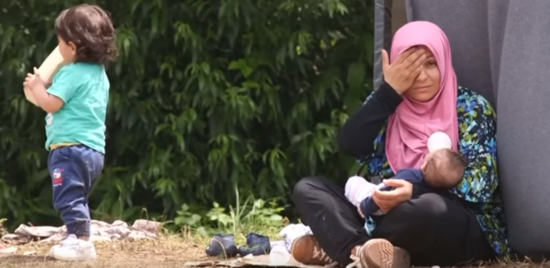This week, on June 20th, the world marked World Refugee Day this week. It was established in 2001 to draw attention to the plight of refugees worldwide.
UATV remembers the 68-and-half-million people around the world who have been forcibly displaced from their homes. Most of them, 40 million, are internally displaced, meaning they fled elsewhere within their home countries. The rest had to find safety internationally. From South Sudan to Syria, Bangladesh to Ukraine, a worldwide refugee crisis continues.
The Rohingya of Myanmar, called foreigners in their own country, have faced ethnic cleaning at the hands of the Burmese military and Buddhist extremist militias.
Syria remains the largest source of refugees in the world. Around six million Syrians are registered with the UN High Commissioner for Refugees. Most have settled in neighboring Turkey, Lebanon, and Jordan.
Other refugees have taken the hazardous journey across the Mediterranean in barely-usable boats, trying to reach the southern coasts of France, Italy, and Spain. Just on Tuesday, an Italian coast guard vessel brought a group of refugees ashore in Sicily who were in urgent need of medical and psychological care.
Meanwhile, in the United States President Donald Trump’s administration experimented with a policy of separating children from their families who cross the southern border, a policy which was condemned by members of both political parties, human rights organizations, and religious groups. Some 2,000 children were reported to have been torn away from their parents by border guards before Trump finally caved in to demands to end the practice today.
And of course, we cannot forget the millions of Ukrainians displaced by Russian aggression. Roughly One-and-half million people are officially registered as internally displaced persons, or “IDPs” with the government. More have fled to other countries. Others are simply not on the books. Their support services are understaffed and underfunded, foreign support is inadequate, and they sometimes even find themselves harmed by bureaucratic institutions or ill-informed prejudices.
Refugees all over the world face incredible hardship. All it takes is a twist of fate: a war, a natural disaster, finding yourself on the wrong end of political change, and you may join them.













